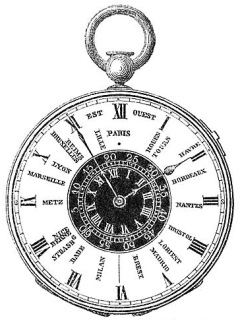
What do new atheists actually believe?
Well, I don’t know if I’m new but I’m certainly an atheist.
First a quick answer on Michael’s three assumptions about atheist “cliff notes”:
- “There are no gods”: yeah, that’s kind of the point of atheism, ain’t it?
- “Theists are IDiots”: not all of them although some are.
- “Catholic priests molest children”: some do, that’s fact, right? The Church’s failure to report those to the authorities is also important to point out.
Michael seems to insinuate that is all we ever talk about. Well, what we have here is first what defines us, then the very important issue of science education and finally one of the biggest scandals to touch the Church in recent times. It’s understandable that would take a lot of space on atheist blogs. But the idea that we would never talk about anything else is a stretch.
So on to the questions…
1) Why is there anything?
I don’t know, but I have some ideas. Consider very simple mathematical structures such as the natural numbers or mathematical groups. Those structures exist independently of the universe and of the existence of mathematicians, let alone any divinity. There you have an example of something that exists naturally and spontaneously. Now if you consider more complex structures (even simple concepts such as group theory can summon monsters of complexity) you can imagine that above a certain level of complexity emerging properties could be part of them. An example of emerging properties is space and time emerging from an underlying discrete lattice.
Note that this idea would be rather difficult to test (although one should not underestimate human genius) but it has the advantage of not requiring a supernatural explanation. In answering this question and others, it’s a good first step to determine that there *are* naturalistic explanations even if they are not necessarily supported by evidence (yet). Naturalistic explanations do have this privilege of being immediately more credible than a supernatural one by virtue of being naturalistic, yes.
It is also a recent discovery of science that the total sum of the energy in the universe is zero. It’s been argued that given a set of laws (and laws, as seen above, don’t necessitate creation), a universe such as ours could spontaneously emerge thanks to that property (Hawking’s new book does a fair job at explaining it, but I also recommend some of Lawrence Kraus’ talks). That is a different argument but it is also valid, albeit at a different level.
2) What caused the universe?
It seems to me that the idea of causality implies time exists. When talking about cosmology you can’t treat time this way: time is a property of the universe, not something that exists outside of it. It follows that in order to have causality of any sort, you need the universe to already exist, and you need to be in a part of that universe where time exists.
That in itself a problem but compound it with modern cosmology indicating that the universe probably has no boundary and that time ceases to make sense when you continue in that direction that we call the past. There goes causality.
Even if you accept the notion of a universal time that exists without the universe or if you somehow extend the idea of causation to not rely on the existence of time, there is still no need for a first mover. The universe could continue indefinitely in the direction of the past (assuming that can be defined), or it can have no boundary, but in both cases, why would it need a cause?
3) Why is there regularity (Law) in nature?
I don’t know, but 1) gives a possible answer: it’s the sets of laws that exist outside of our universe and outside of time, and the universe emerges out of what the laws permit.
4) Of the four causes in nature proposed by Aristotle (material, formal, efficient and final), which of them are real? Do final causes exist?
Well, I’m not sure but we’ve learned a thing or two since Aristotle, wouldn’t you say? Ultimately I would say that final causes don’t exist (see above, about time and causality being properties of the universe that don’t apply to it as a whole).
5) Why do we have subjective experiences and not merely objective experiences?
Probably because our consciousness emerges from our brain, which only receives subjective stimuli.
6) Why is the human mind intentional, in the technical philosophical sense of aboutness, which is the referral to something besides itself? How can mental states be about something?
I’m not sure I understand all the implications of the question but maybe because it emerges from sensorial information? What could it be referring to if not something beside itself?
7) Does Moral Law exist in itself, or is it an artifact of nature?
Sam Harris just published a book you might want to read in order to get a much better answer to that question than what I could provide in a blog post. I do believe that there is such a thing as well-being that emerges out of the nature of our bodies and minds. From that you can define the Golden Rule (which all human societies have done independently) and the rest is refinements from that. Some of those refinements are justified by how natural selection modeled us, yes.
8) Why is there evil?
You first need to define evil. Let’s say we define it as deliberate causation of harm. Then there are a variety of possible causes for it: greed, past traumas, psychosis, religious indoctrination, etc. I’m not sure how that question is very puzzling unless you believe in an omnipotent and universally good god.